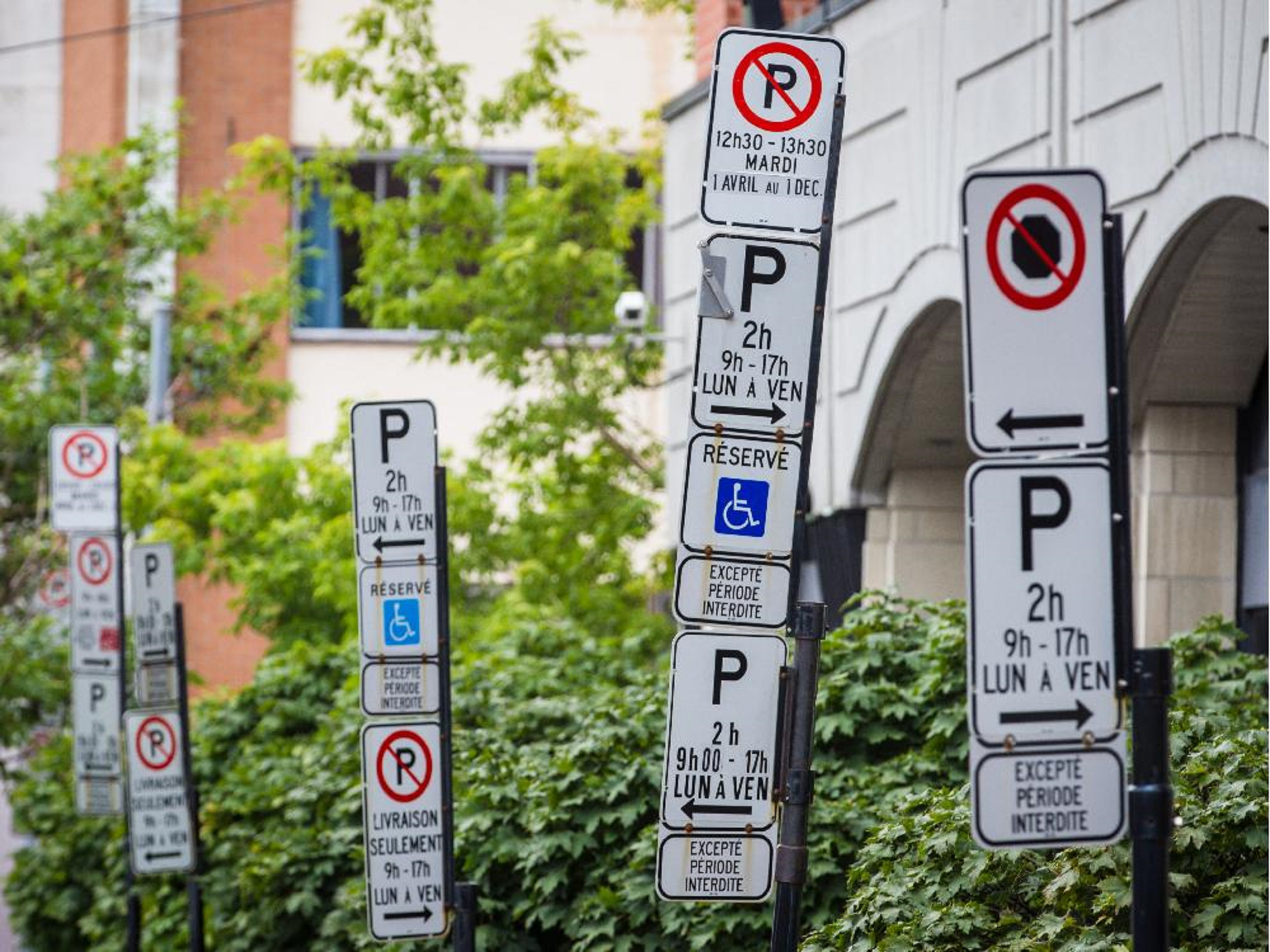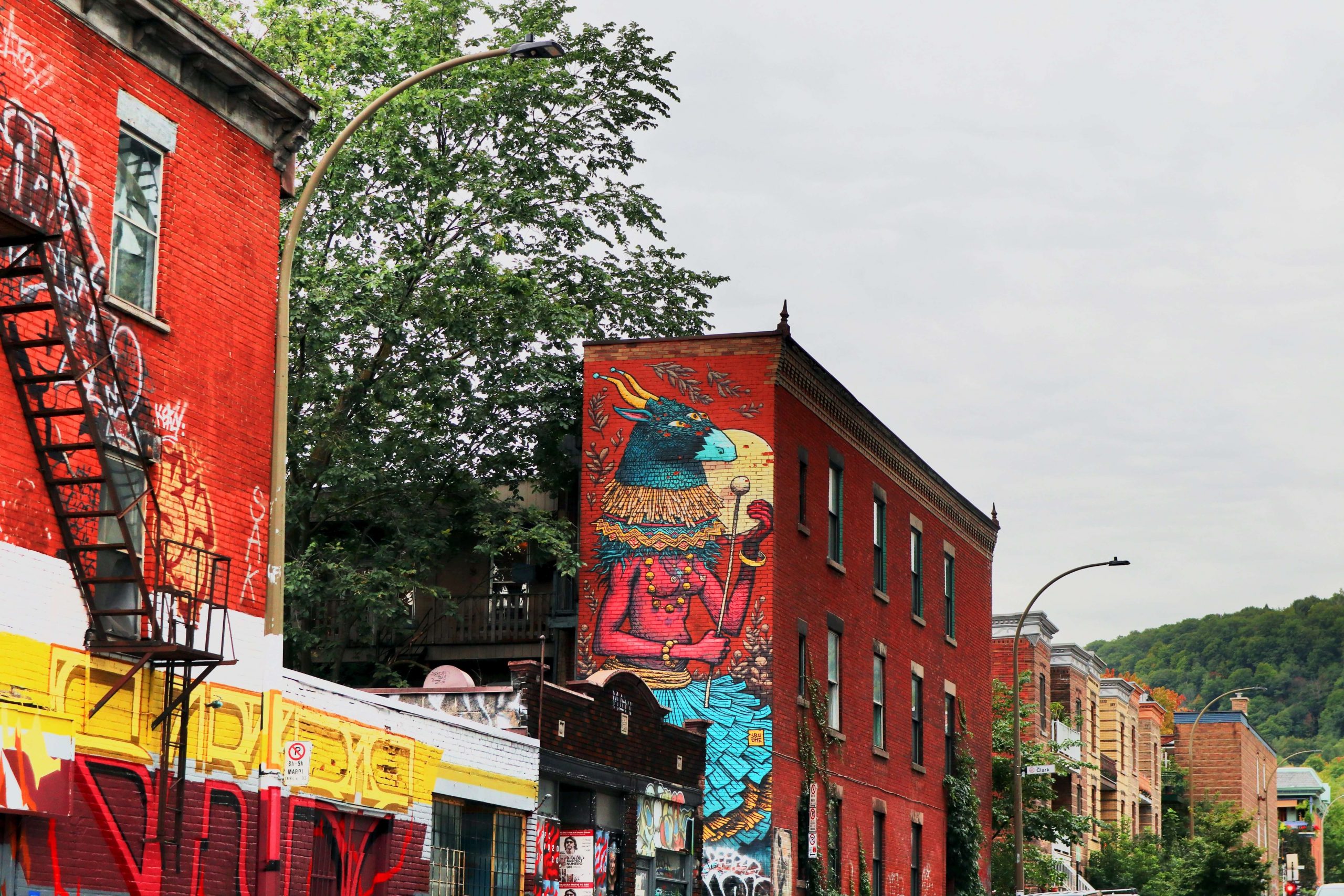1. First steps before moving to Quebec
Finding a job
In September 2023, the unemployment rate in Quebec stands at 4.4 percent, which is lower than the national average of 5.5 percent. This marks an improvement from 2021 when it was 6.1 percent and is similar to the 4.3 percent rate in 2022.
Before moving to Quebec, it’s important to consider the job sectors with high demand. These sectors include manufacturing, agriculture, hydroelectricity, and various service industries. Some key services in Quebec include financial and insurance services, tourism, digital and entertainment, as well as artificial intelligence (AI). When searching for a job in Quebec, make sure to check employment vacancies on popular websites like Indeed, Jobillico, LinkedIn and Government du Québec.
Statistique Quebec (Sept 2023)
Getting there
When moving to Quebec, consider different transportation options. You can access the province by plane, road, or rail. Flying is the most time-efficient option, with Montreal-Pierre Elliott Trudeau International Airport (YUL) and Quebec City Jean Lesage International Airport (YQB) as primary gateways, for both domestic and international travelers.
If you prefer road trips, Quebec’s well-maintained highways provide scenic routes, accessible via the Trans-Canada Highway. For cost-effective road travel, explore options like Greyhound, offering comfortable bus services.
Quebec’s extensive rail network, operated by VIA Rail Canada, provides a convenient and comfortable way to explore the province. VIA Rail offers several routes that connect major cities within Quebec and connect the province with the rest of Canada, making it an excellent option for travelers seeking an alternative to flying.
Must dos before your arrival
Moving to Quebec is an exciting journey, and to ensure a smooth transition, it’s essential to prepare for life in this unique province. Here are some things you should consider before your arrival:
- Housing Arrangements: Ensure a smooth transition by securing temporary lodging and exploring long-term housing options.
- Immigration Insight: Gain a comprehensive understanding of the immigration process, including visa requirements such as study or work permits, permanent residency, or citizenship.
- Document Organization: organize essential documents like passports, birth certificates, and immigration paperwork.
- Cost of Living Analysis: Make informed decisions by conducting thorough research on living expenses, including housing, groceries, transportation, and healthcare.
- Weather Preparedness: Be ready for a wide range of temperatures throughout the year, from hot summers to freezing winters with snowfall.
2. Upon your arrival in Quebec
Must dos right upon your arrival
- Applying for a health insurance plan from the Régie de l’assurance Maladie du Québec (RAMQ)
- Acquire a driver’s licence from the Société de l’assurance Automobile du Québec (SAAQ)
- Easily change your address with all service providers using MovingWaldo’s app, or you can read the complete checklist for changes of Address in Quebec to get a better idea.
- If you’re moving from outside Canada, make sure to get a cell phone from providers like TELUS, and checkout the best internet plans in Quebec.
- French Language Proficiency: Enhance your integration into Québécois culture and daily life by learning the official language, even if it’s just the basics.
Should I know French before moving to Quebec?
The 2016 census concluded that 10.6 percent of the population in Quebec speaks English as a mother tongue, and forty-five percent of Quebecers can speak both English and French. That being said, if you only speak English, there might be a language barrier. However, most of the time you will be able to communicate in English, especially in larger cities such as Montreal. So, make sure to lend an ear to the famous “bonjour/hi!”
Many regions in Quebec are welcoming and offer a variety of job opportunities. Yet, it will be difficult to secure employment if you don’t know French, especially outside of Montreal. For example, in the service industry, you must know French. According to the Charter, every person in Quebec has the right to be served in French. Meaning, workers who deal with the public have to know French well enough to communicate with the public in French.
That being said, finding a job in Quebec as someone who speaks English is not impossible, but it can be a challenge. Being able to speak French is a tremendous asset. Therefore, check with your employer before you move to see if your company offers French classes. Learning the basics in French can prove to be extremely rewarding. We encourage you to learn more about language discrepancies in the workplace.
Setting up a bank account
To make everyday purchases, having a bank account is essential. You can open one in person at a financial institution after providing the necessary identification.
Before selecting a bank, compare institutions for the best returns, lowest administration costs, and the option to open your account remotely before arriving in Quebec. Notable banks in Quebec include Desjardins, RBC, TD, BMO, Banque Nationale du Canada, CIBC, Scotiabank, and HSBC.
Be careful with credit offers since they usually have high interest rates and extra financial responsibilities. If you need help managing your budget, you can reach out to the Associations de consommateurs du Québec.
Getting health insurance
In Quebec, RAMQ manages the Health Insurance Plan. If you’re eligible and registered, you can enjoy different covered health services, while ineligible individuals can access these services but need to pay for them.
To apply for health insurance in Quebec, you can visit the RAMQ registration page or call 1-800-561-9749. You’ll need a valid Health Insurance Card to receive services covered by the public plan, including medical, dental, optometry, and pharmaceutical services.
For additional coverage, you can opt for employer-sponsored health insurance, costing an average of $63 per month, or choose private health insurance, typically ranging from $50.00 to $166.70 in Montreal.
Numbeo (Sept 2023), RAMQ, Hellosafe (2023) & Insurance Business (Apr 2023)
3. Best places to live in Quebec
Living in Quebec offers a rich cultural experience, access to high-quality education, and a relatively affordable cost of living. Choosing the right place to live in the province means exploring its diverse cities, each with unique charm and lifestyle options.
Quebec City hosts exciting winter carnivals like the iconic Carnival of Quebec, which transforms the city into a winter wonderland each year. Montreal is where many newcomers find job opportunities, green spaces, a vibrant culture scene, and a lively student scene. Explore the best Montreal neighborhoods before you move.
Here, we provide insights into some of the most charming cities for residence in the province of Quebec:
|
Cities |
Characteristics |
|
Quebec City |
Charming and cultural environment. |
|
Montreal |
Quebec’s largest city, hub of culture, art, and diversity. |
|
St-Bruno de Montarville |
Family-friendly atmosphere. |
|
Boucherville |
Excellent quality of life, quiet and peaceful residential environment near Montreal. |
|
Saguenay |
Mix of urban and natural attractions for outdoor enthusiasts. |
|
Lévis |
Picturesque views of the city skyline and a quieter suburban lifestyle. |
|
Sherbrooke |
Known for its educational institutions, making it a great place for students. |
Setting up home services
Once you’ve signed your lease and are prepared to make the move, it’s essential to get in touch with Energir or Hydro-Quebec to set up your gas and electricity services.
Additionally, don’t forget to schedule an appointment with your chosen internet provider well in advance of your move to avoid being left without internet access for an extended period. The provider you’re currently using in your previous province might not be available in your new Quebec residence.
To explore and compare different internet service rates, you can make use of MovingWaldo’s tool, which allows you to discover the available telecom plans specific to your postal code. This proactive approach will ensure a smoother transition into your new home.
Should you rent or buy?
The cost of living in Quebec varies depending on whether you decide urban or rural areas. Cities like Montreal and Quebec City are more expensive, while small towns offer more affordable living options.
Montreal is one of Canada’s most budget-friendly cities, with a lower average rent at $1,221.81 for a one-bedroom apartment outside the city center, compared to Toronto’s $2,280.60. However, it’s important to note that while rent may be lower, Quebec has higher provincial taxes, with the country’s highest tax rate, which takes nearly a third of your paycheck. In 2023, Quebec’s income tax rate is 14% on taxable income up to $49,275.
On the other hand, if you’re considering homeownership, the average house cost in Quebec is around $497,951.00. In Montreal, it’s $521,600.00, and in Central Quebec, it’s $261,400.00 as of August 2023. Be sure to consider your financial situation when deciding where to live in Quebec.
Fun fact – out of the ten cheapest cities to rent an apartment in Canada, eight are located in Quebec.
CREA (August 2023) & Numbeo (Sept 2023)
Renters: How do I find an apartment in Quebec?
Browse ads on websites such as Kijiji and Craigslist once you have determined where you want to move to. Understanding Quebec’s Kijiji and Craigslist adverts may seem like a challenge! Here is an excellent glossary to help you understand the Quebec rental vocabulary, such as 4 ½, semi furnished, square footage, etc.
Before making up your mind on permanent housing, browse through the neighborhoods located in your city. When browsing neighborhoods make sure to be aware of their proximity to work, school, public transport (STM in Montreal and RTC in Quebec City) and other services. Take into consideration that the cost of a new home or apartment will vary depending on the neighborhood you are moving to.
Renters: How do Quebec leases work?
When you find the perfect future home, you will be required to sign a lease. Before signing, you should know the lease and building rules must be written in French unless the landlord and tenant agree on another language.
The majority of the time, the contract debuts July 1st and ends on June 30th the following year. The lease will include the cost of rent, the payment date and the charges that are included or not (Electricity and Internet) It is important to note that you are not required to give last month’s rent to your landlord.
Once you have signed your lease, don’t forget to take out a tenant insurance policy. Renter’s insurance covers your belongings (your TV, clothes, jewelry, etc.) and it is affordable. Take the time to get home and auto insurance quotes and compare coverage and prices available in Quebec.
4. Cost of living in Quebec
The cost of living varies on whether you are looking to live in the city or a small town. Cities such as Montreal and Quebec City are more expensive to live in, while small towns can be much more affordable!
Compared to major cities across Canada, Montreal has the lowest rent. Here’s an overview:
|
Category |
Monthly cost |
|
1 bed apt rent outside city center *Montreal |
$1,221.81 |
|
Groceries Numbeo’s grocery list ($82.64 multiplied by 4) |
$330.56 |
|
Utilities Electricity, heating, cooling, water, garbage |
$110.21 |
|
Internet with 60 Mbps |
$59.54 |
|
Transit pass |
$97.00 |
|
Entertainment Meal, taxi, movie |
$116.75 |
|
Gym membership |
$41.14 |
|
Total |
$1,977.01 |
For more information, check out our article about the cost of living in Montreal.
5. The weather in Quebec
According to the AccuWeather, the province of Quebec experiences four distinct seasons, each with its unique characteristics.
Summer extends from June to August and is typically warm and sunny, with temperatures ranging from 25°C (80°F) to 35 °C (90°F). This season is ideal for outdoor activities and festivals.
In contrast, winter, which extends from December to February, brings cold temperatures and significant snowfall, with temperatures ranging from -13°C (8°F)to -16°C (3°F). This season is perfect for winter sports and events like Quebec City’s Winter Carnival, which takes place during this period.
6. What to do as a local in Quebec
Moving to Quebec means immersing yourself in French culture by practicing the language and participating in local events. If you’re a history fan, you can start by visiting the historic buildings in Old Quebec. If you’re a nature enthusiast, visit Mont-Tremblant National Park to hike and admire the stunning Laurentian Mountains.
Sports fanatics can enjoy winter adventures, such as ice skating at Patinoire de la Place D’Youville in Quebec City, or they can visit Jacques-Cartier National Park for hiking.
If you prefer city life, you can join the Quebec Winter Carnival for snow sculptures in winter or enjoy the Quebec City Summer Festival, which features live music.
Quebec has an abundance of things to do, different blogs in the area such as MTLblog and Narcity will keep you aware of different year-round activities.
You can rent or buy a car to visit around Quebec, it has something to offer everyone!
How to understand Montreal’s street signs?

Sorry, no one can help you with that…
Where should I buy different errands in Quebec?
- For food, depending on your area, you will be able to access either local family owned grocers as well as large grocery chains.
- For alcohol, the SAQ has the largest selection. However, ‘Dépanneurs’ (Corner stores) will also have a small variety. At dépanneurs, you will be able to purchase alcohol until 11 pm.
- For personal care, prescriptions, and cosmetics Jean Coutu, Pharmaprix/Shoppers Drug Mart, and Uniprix will carry these necessities.
- For home hardware, stores like Rona, Home Depot, Canadian Tire will have all the necessary tools for your home DIY projects! Crafty DIY projects are sometimes key to making your new place feel like home.
7. Fun facts about Quebec
- The Hôtel de Glace near Quebec City is North America’s only ice hotel.
- The Quebec Winter Carnival is the world’s largest winter carnival.
- Quebec City’s Old Town has been a UNESCO World Heritage since 1985, standing as the most well-preserved fortified town.
- Mont Tremblant is a popular ski destination with a charming European alpine village.
- Quebec has a thriving film industry and hosts the Montreal World Film Festival.
Conclusion
Moving to Quebec can be an exciting adventure, but it’s important to learn about its culture, language, and way of life. By understanding the province and its unique features, you can make your move smoother and start a fulfilling journey in this vibrant and multicultural part of Canada.
As you think about your move to Quebec, doing some research and choosing the best movers in Montreal ahead of time will make your transition easier and less stressful, setting the stage for a successful new chapter in your life.




